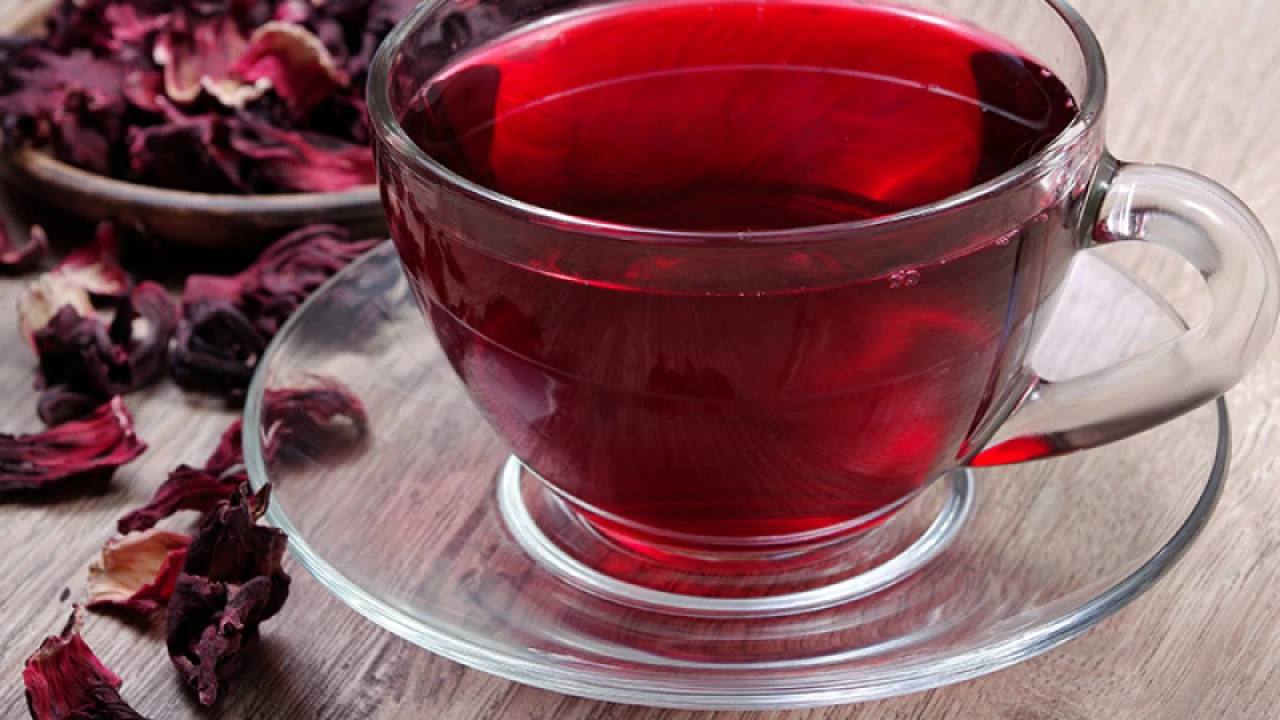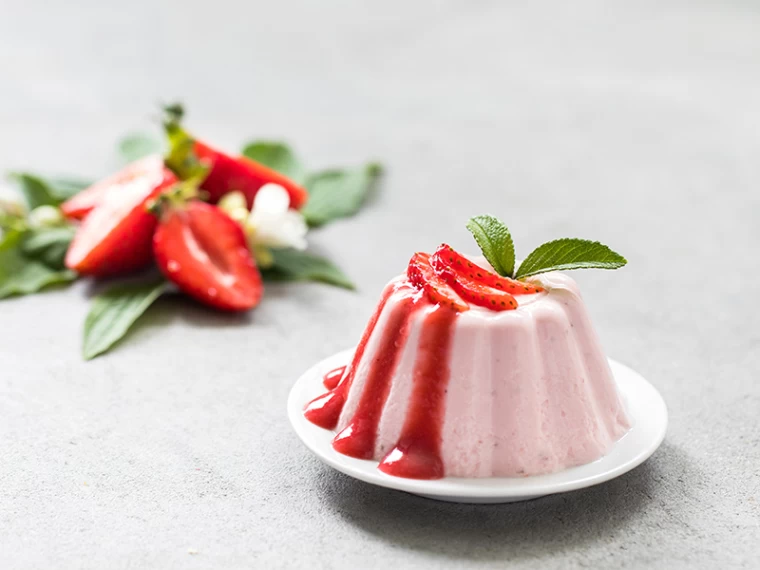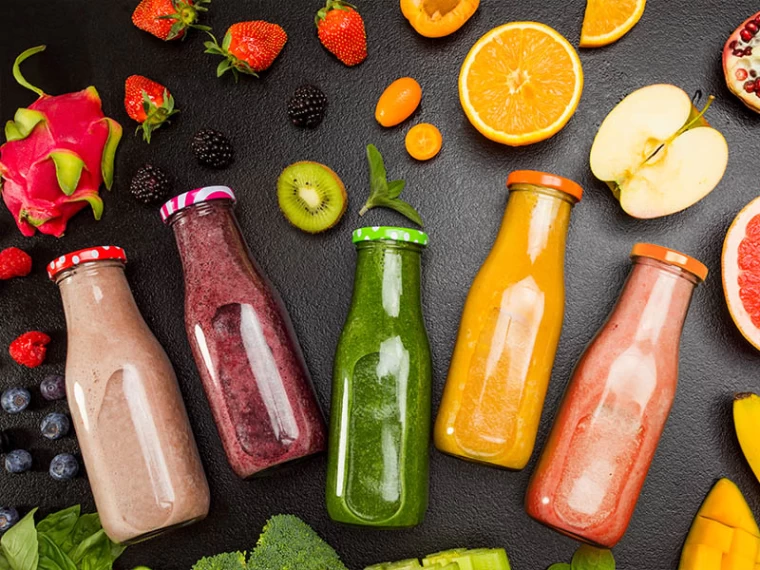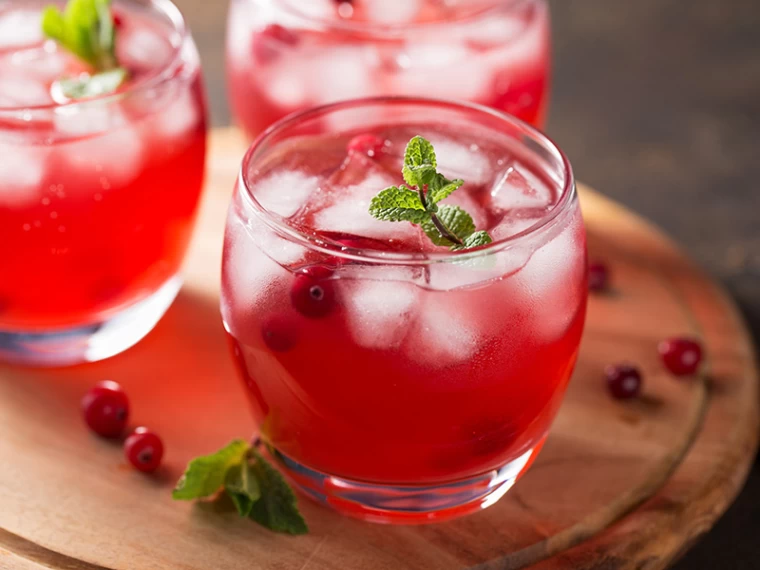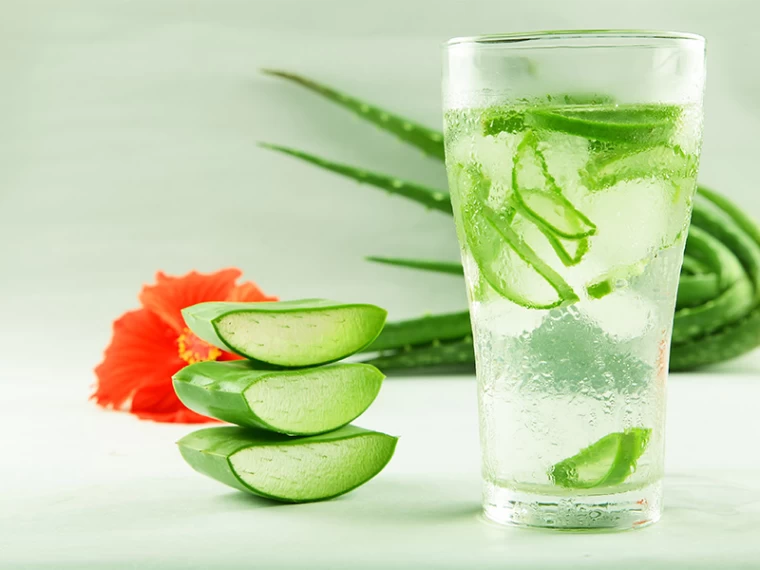In the depths of history, amidst ancient legends and tales, there is a story of a crimson and delightful drink that springs from desert flowers and, with its sour and pleasant taste, refreshes the soul and spirit. This amazing drink, which has been known by various names over time such as Malmir tea, red tea, Roselle tea, tamarind tea, and Kashmar tea, is now recognized worldwide as hibiscus tea and has attracted countless fans.
History of Hibiscus Tea
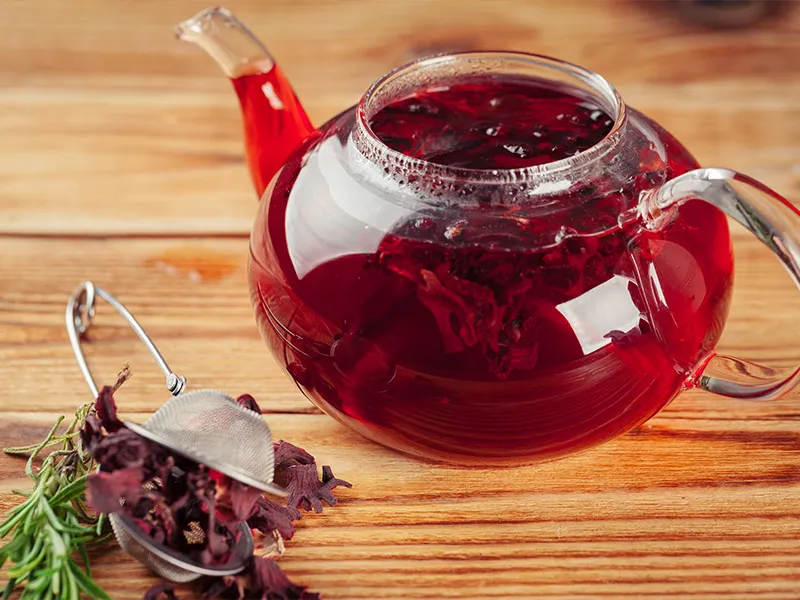
Hibiscus tea is an herbal infusion made from the dried flowers of the Indian rosemary plant (Hibiscus sabdariffa L). This plant is native to tropical and subtropical regions of Africa and has long been used as a rich source of antioxidants, vitamins, and minerals. Hibiscus flowers come in various colors, including dark red, purple, and pink, and have a sour and sweet taste that balances beautifully with a bit of sugar or honey.
Many legends surround hibiscus tea, adding to the mystery of this delightful drink. In ancient Egypt, pharaohs drank hibiscus tea as the "drink of the pharaoh" and believed it had rejuvenating properties. In West African countries, there is a legend that a benevolent spirit gifted hibiscus flowers to the people to quench their thirst and fatigue.
Although the mythical and legendary aspects of hibiscus tea cannot be scientifically proven, they highlight the importance and special place this drink has held throughout history.
Nutritional Value Table of Hibiscus Tea
|
Nutrient |
250 ml |
|
Calories |
4 |
|
Fiber |
1 gr |
|
Vitamin C |
15% of daily requirement |
|
Antioxidants |
High |
|
Potassium |
12% of daily requirement |
|
Iron |
4% of daily requirement |
- Rich in Antioxidants:
Hibiscus tea is a rich source of antioxidants such as anthocyanins and hibiscus acid. Antioxidants help neutralize free radicals and protect cells from oxidative damage, which can reduce the risk of various diseases like cancer, cardiovascular diseases, and premature aging.
- Boosts Immune System:
The antioxidants in hibiscus tea help strengthen the immune system and increase the body's resistance to diseases. Studies have also shown that hibiscus tea can reduce inflammation in the body and speed up wound healing.
- Controls Blood Pressure:
One of the most important and well-known properties of hibiscus tea is its potential effect on lowering blood pressure. Numerous studies have shown that hibiscus tea can effectively control high blood pressure.
- Reduces Cholesterol:
Due to its fiber and antioxidants, hibiscus tea can help reduce bad cholesterol (LDL) and increase good cholesterol (HDL), thereby reducing the risk of cardiovascular diseases.
- Aids in Weight Loss and Fitness:
Hibiscus tea, with its low calorie and high fiber content, can help create a feeling of fullness and reduce appetite, aiding in weight loss and fitness.
- Improves Digestive Health:
The fiber in hibiscus tea can improve digestive system function and alleviate digestive issues such as constipation.
- Detoxifies the Body:
Hibiscus tea, with its diuretic properties, can help detoxify the body and eliminate toxins.
- Anti-inflammatory:
Due to its anti-inflammatory properties, hibiscus tea can reduce inflammation in the body and relieve joint and muscle pain.
- Enhances Memory:
Studies have shown that hibiscus tea can enhance memory and improve cognitive function.
- Reduces Anxiety and Stress:
Hibiscus tea, with its calming properties, can help reduce anxiety and stress. This drink can also improve sleep quality.
- Source of Vitamin C:
Hibiscus tea is a good source of vitamin C, which helps strengthen the immune system, maintain healthy skin and hair, and increase iron absorption.
- Source of Potassium:
Hibiscus tea is a good source of potassium, which helps regulate blood pressure, maintain heart health, and support muscle function.
- Source of Iron:
Hibiscus tea is a source of iron, which is essential for the production of red blood cells and the transportation of oxygen in the body.
- Source of Flavonoid Antioxidants:
Hibiscus tea contains flavonoid antioxidants such as catechin and quercetin, which can protect cells from oxidative damage and reduce the risk of chronic diseases.
- Source of Citric Acid:
Hibiscus tea contains citric acid, which helps iron absorption, strengthens the immune system, and prevents kidney stones.
Unique Aroma, Taste and Color of Hibiscus Tea
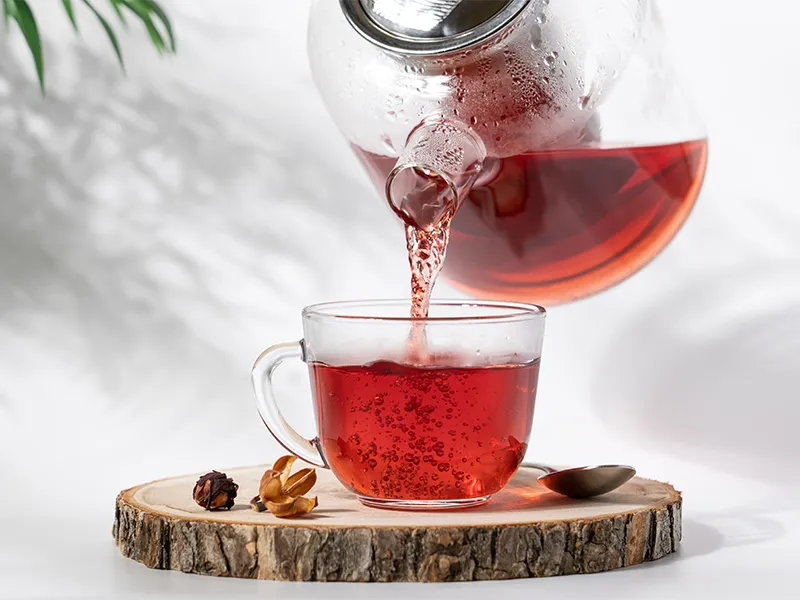
Hibiscus tea, with its reddish-purple color, captivates every gaze. This beautiful color is a sign of the presence of powerful antioxidants called anthocyanin.
The taste of hibiscus tea is a delightful combination of sour and sweet. This unique taste is due to the presence of organic acids such as hydro citric acid and malic acid. If the sour taste of the tea is a bit strong for you, you can sweeten it with a bit of honey or sugar.
In addition to being consumed hot, hibiscus tea can also be enjoyed cold. Simply cool it after brewing and serve it with ice and a bit of fresh lemon or mint. This refreshing drink is very enjoyable during the hot seasons.
Hibiscus Tea beyond a Drink
Hibiscus tea is not only used as a hot or cold drink. With a bit of creativity, you can use these beautiful and colorful flowers in making desserts, jams, compotes, and even sauces.
Here are a few ideas for using hibiscus tea beyond a drink:
- Hibiscus Tea Jam: mix hibiscus flowers, sugar, a bit of lemon juice, and water to make a delicious jam that is perfect for breakfast or afternoon tea.
- Hibiscus Tea Salad Dressing: Mix hibiscus tea extract, olive oil, balsamic vinegar, honey, and your favorite spices to make a colorful and tasty salad dressing.
- Hibiscus Tea Jelly: Use gelatin powder, hibiscus tea extract, and a bit of sugar to make a beautiful and colorful jelly.
- Dessert Decoration: Use dried hibiscus flowers to decorate various desserts, cakes, and pastries.
Invitation to a Colorful Party
Hibiscus tea invites you to a colorful party of taste and health. With each sip of this delightful drink, gift yourself freshness and vitality and enjoy its unique benefits. Don't forget to share this party with your friends and loved ones and introduce them to the amazing world of hibiscus tea.
The Last Sip, Lasting Taste and Health
As you take the last sip of hibiscus tea, the pleasant feeling of freshness and vitality lingers within you. However, the benefits of this drink do not end with the empty cup. Regular consumption of hibiscus tea, with a healthy and balanced diet, can significantly enhance your health.
Hibiscus Tea, a Part of a Healthy Lifestyle
Do not consider hibiscus tea just as a separate drink. This health elixir can become a part of your healthy lifestyle. By replacing hibiscus tea with carbonated drinks, energy drinks, and sugary beverages, you will take an effective step towards your health.
In addition to consuming hibiscus tea, having enough physical activity, sufficient sleep, stress management, and a diet rich in fruits, vegetables, and whole grains will help you achieve ideal health and well-being.
Summary:
Hibiscus tea is a drink full of benefits and properties that can help enhance your health and well-being. It’s pleasant taste, beautiful color, and unique properties make it an ideal option to replace industrial and unhealthy drinks. So brew a cup of colorful and delightful hibiscus tea, enjoy its unique aroma and taste, and give yourself a valuable gift of health.
Frequently Asked Questions:
- How long can hibiscus tea be stored?
Dried hibiscus flowers can be stored in a sealed container in a cool, dry place for up to one year.
- Can hibiscus tea be used as an infusion with other herbs?
Yes, hibiscus tea can be combined with other medicinal herbs and dried fruits such as lemon verbena, borage, ginger, and cinnamon.
- Does hibiscus tea stain teeth?
No, hibiscus tea generally does not stain teeth. However, it is better to wash your mouth with water after consuming hibiscus tea as a precaution.

